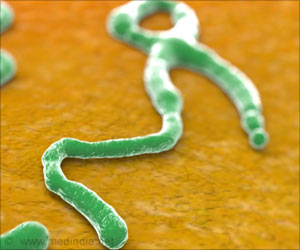Health experts from around the world are studying a group of untested drugs which they hope will provide the answer to contain the outbreak.

With no fully tested treatments for Ebola, the WHO has endorsed rushing out potential cures like ZMapp -- a call echoed by African doctors battling the epidemic that has taken some 1,900 lives so far.
"Everybody keeps asking why isn't this medication made available to our people out there?" Samuel Kargbo, from Sierra Leone's ministry of health, told AFP.
The WHO said "extraordinary measures" were in place to accelerate the pace of clinical trials -- but admitted that even that would likely not allow "widespread use before the end of 2014".
Abdulsalami Nasidi, project director at the Nigeria Centre for Disease Control, nevertheless said the Geneva discussion "gives a lot of hope to the African people affected and those who are in panic".
ZMapp has been given to about 10 infected health workers, including Americans and Europeans, of whom three have recovered.
Advertisement
- Short on manpower, supplies -
Advertisement
On Friday the European Union released 140 million euros in aid to combat the disease, a day after the United States offered an additional $75 million to buy beds and bolster treatment centres.
"What is needed? It is health workers. We need treatment centres. We need more, especially in Liberia. Definitely, we need people who will be in treatment centers, but there is also a need for supplies," WHO spokesman Tarik Jasarevic said at a Friday briefing.
The crisis has stirred a fierce debate about how the world should have responded after first reports trickled out from some of the world's poorest countries with dilapidated medical infrastructure.
In a commentary in The Lancet medical journal published Friday, Georgetown University's Lawrence Gostin said the outbreak could have been stopped short if authorities had followed WHO guidelines on global health emergencies.
"How could this Ebola outbreak have been averted and what could states and the international community do to prevent the next epidemic?" asked Gostin.
"The answer is not untested drugs, mass quarantines, or even humanitarian relief," he wrote.
"If the real reasons the outbreak turned into a tragedy of these proportions are human resource shortages and fragile health systems", the solution is to fix these inherent structural deficiencies.?
- Aid workers 'literally exhausted' -
But aid agencies warned that the haemorrhagic fever whose easy spread via body fluids has ravaged frontline workers is still winning the battle.
"The situation continues to get worse, and there is no end in sight," the head of the International Federation of Red Cross and Red Crescent Societies, Elhadj As Sy, said.
As Say said 1,700 Red Cross volunteers were "literally exhausted" from the hands-on work of treating the infected, retrieving corpses of victims from far-flung sites and fighting rumours on the ground about Ebola.
Doctors Without Borders (Medecins Sans Frontieres, MSF) earlier this week said the world was "losing the battle" to contain the ruthless virus.
Asked for the WHO's reaction to that dire assessment, spokesman Jasarevic responded on Friday: "You could say that we're trailing the illness now, when what we need to do is to be in front of it."
- Many deaths go unreported -
WHO chief Margaret Chan told reporters in Washington on Wednesday the death toll was "more than 1,900".
The WHO, in an official toll on Thursday, counted 1,841 deaths, out of a total of 3,685 cases in Guinea, Sierra Leone and Liberia.
Another seven people died in Nigeria out of 22 cases, while one case has been confirmed in Senegal, it said.
But spokesman Tarik Jasarevic told AFP the official death toll was likely a gross underestimate due to under-reporting, and that it "is estimated that there are two to four times as many people infected with Ebola as reported".
At least 30 more people have died in a separate outbreak in the Democratic Republic of Congo.
American doctor Rick Sacra, who was infected while working in hardest-hit Liberia, was due in the United States for treatment on Friday.
Source-AFP













